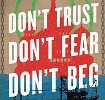Prominent British producer David Puttnam, best known for “Midnight Express,” “The Killing Fields” and “The Mission,” is set to don his producer hat again after a long hiatus with environmental activism thriller “Arctic 30,” the true tale of the activists on Greenpeace’s Arctic Sunrise ship, who were thrown into a nasty Russian jail.
Puttnam has teamed up with Saudi philanthropist and film producer Hani Farsi.
They will co-produce the pic which is based on “Don’t Trust, Don’t Fear, Don’t Beg,” the recently published first-person account by Ben Stewart, the head of media for Greenpeace, of how they took on Russia’s largest oil company that was drilling in the Arctic and the ensuing months they spent in in a jail in Murmansk.

The project, which does not have a director attached yet, will be launched by Puttnam and Farsi in Cannes Monday morning at the Plage Royale.
There will be further announcements about the pic’s creative team.
For the past eight years Farsi’s production company, Corniche Pictures, has been producing and distributing films with an underlying social commentary such as Elia Suleiman’s “The Time That Remains,” and Mira Nair’s “The Reluctant Fundamentalist.” He is also co-owner of French distribution and sales company Le Pacte, which have eight films at Cannes this year, including Nanni Moretti’s “My Mother” and Palestinian pic “Degrade” by Arab and Tarzan Abu Nasser.
Puttnam, a member of the House of Lords who has long been involved in campaigning for environmental causes, said in a statement that in 2005 he “had the privilege” of chairing the Committee that scrutinized and then steered though Parliament the world’s first climate change bill.
“Reluctantly, and rather late in life, I’ve had to come to terms with the fact that the only professional tool I have at my disposal is that of a one-time producer,” he mused. “Not really believing in coincidences, I found myself absorbing Ben Stewart’s recounting of the adventures of ‘The Arctic Thirty’ at exactly the same time as being urged by my friend and colleague, Hani Farsi, to use my former skills to highlight my environmental concerns.”
Puttnam said that the upshot of all of this is “my decision to climb back into harness and hopefully help bring to the screen this amazing story.”
Farsi said that he had been friends with Puttnam for a number of years and has worked closely with him on a number of other projects through my foundation.
“It’s been a long-held ambition of mine to find a film project that we could work on together and on reading the manuscript of Ben’s book, I knew immediately that this was it.
“Their plan was simple and peaceful – to attach a Greenpeace pod to the side of a floating offshore rig in order to prevent oil being extracted from the brutally cold Arctic waters,” Farsi added.









